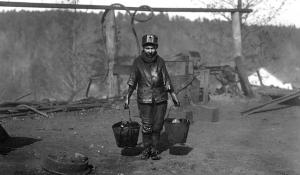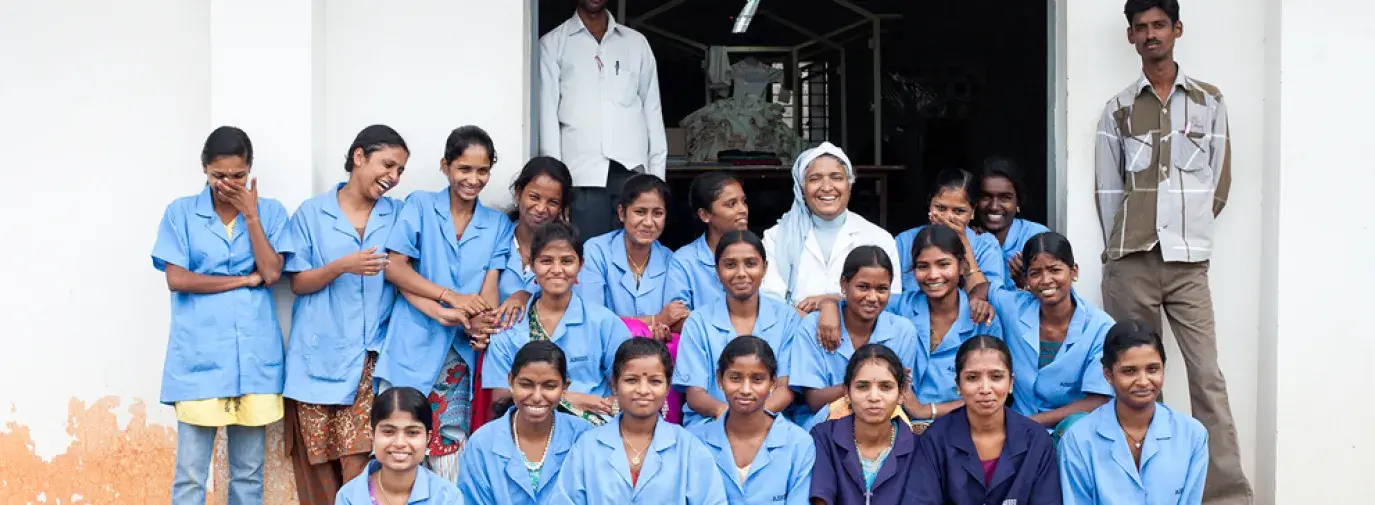
In South India, one garment manufacturer is busy changing the narrative around offshore factories. What started in 1994 as a nonprofit rehabilitation program by Franciscan nuns has grown into a thriving social enterprise. Assisi Garments uses local organic cotton and provides training and employment for deaf, mute, and economically disadvantaged women in a safe and supportive environment. The revenue Assisi Garments makes goes to paying the women a fair wage as well as supporting orphaned youth and medical facilities.
This story is one of many that sustainable fashion entrepreneur and Source My Garment (2019) author, Adila Cokar, loves to share. Cokar has worked in various roles of the fashion industry for 18 years—from starting her own clothing line to connecting other clothing businesses with fair trade suppliers. Her recent book named after her business, Source My Garment, is an insider’s guide to
responsible offshore manufacturing.
“There’s a huge misconception that all factories are unethical,” Cokar says. “There are a lot of great manufacturers out there that need our help as a global economy.”
The bad rap around offshore garment manufacturing is founded in disaster. In 2013, building owners ignored warnings that Rana Plaza, an eight-story building housing five garment factories in Bangladesh was unsafe. Garment workers were ordered to return to work the day the building collapsed, killing more than 1,100 people and injuring 2,500 others. Many of the garment workers were young women.
The deadliest incident in the history of the garment industry caught the attention of people around the world to the mistreatment of factory workers; yet over six years later, women workers are still exploited in the fast fashion industry through harassment, exposure to dangerous chemicals, and long contracts with low pay. While feminist movements have attempted to reform issues around reproductive rights, workplace harassment, and discrimination, fast fashion retailers have monetized the movement with t-shirts bearing feminist slogans made by women working in overseas sweatshops.
Fast Fashion is a Feminist Issue
Feminism fights for gender equality—equal rights and access to opportunity among the sexes. But while women make up about 80 percent of garment workers around the world, they earn significantly less than men, and promotions are a rare prospect for these women. On average, Bangladeshi women work 60 hours a week and earn an hourly rate of 28 taka or $0.95 in USD, according to the 2018 Garment Worker Diaries report. The nonprofit Labor Behind The Label’s “Undercover, Told by Workers” campaign in 2016 recorded that working conditions in Cambodian garment factories are poorly ventilated and lack access to water. These conditions, coupled with overwork and chemical exposure, mean workers in these factories are fainting and malnourished.
Poor working conditions are just one element of this feminist issue—workplace violence often goes unchecked in unregulated factories. A 2018 report from Global Labor Justice includes a written report from an Indian woman working in an H&M supplier factory, where she was beaten by a supervisor. After filing a complaint with the human resources department, the supervisor was told to apologize, but his harassment did not stop. As a recent widow, the woman continued to work at the factory to support her daughter.
This is not an uncommon story for women garment workers. Barriers to equality are rooted in poverty, lack of education, and exploitation by the fast fashion industry, to name a few. But like Assisi Garments, there are businesses that challenge the narrative of exploitation by implementing practices to give power to these women.
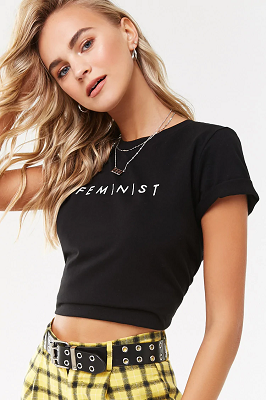
Finding Fair Trade
Fair trade is an example of such practices. The fair trade movement is “about better prices, decent working conditions, local sustainability, and fair terms of trade for farmers and workers in the developing world,” according to Fair Trade Foundation. This system requires companies to pay fair prices to workers, establishing transparency, accountability, and respecting the rights of workers and the environment.
Businesses that employ fair trade principles are in direct contrast to fast fashion brands—for women workers, these principles have made offshore manufacturing equitable by advocating for living wages, combating unsafe labor conditions, and challenging abuse and harassment in the workplace.
Mira Fair Trade is one business that exemplifies these values. Fond of handmade clothing and accessories, Meera Viswanathan would purchase products local artisans created on her annual visits to India with family. Upon visiting rural areas in Rajasthan and Gujarat one year, she learned the women artisans loved to create but had no outlet to sell—if they had access to markets, they could support their families. Inspired to act, Viswanathan researched the fair trade model and began Mira Fair Trade.
“I noticed firsthand in some rural areas in India[…]when you pay a woman, whatever money she gets she saves for the family,” Viswanathan says. “These women bought rice and inexpensive vegetables to cook and feed the kids. If they had a little bit more money, they would buy clothing for their kids, medicine, and if they could make a tiny bit more money, they send their kids to school. Food first, medicine next, then education, in that order,” she adds.
Mira Fair Trade works with no more than 30 families to adequately support the artisans. The women workers set their own prices based on material and labor costs. The business is Fair Trade Federation verified.
“I haven’t heard anything but good things [from the artisans],” Viswanathan says. “These women are paid, and more importantly, are treated with respect. They can support their families and send their kids to school.”
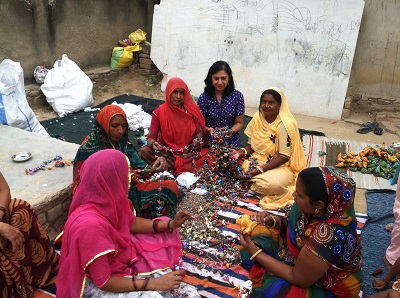
Like Mira Fair Trade, Cokar’s business is changing the narrative around garment workers. Cokar uses her platform to amplify the positive changes that have taken place in factories around the world by facilitating partnerships with clothing brands seeking ethical and environmentally friendly manufacturers. Most of all, Cokar values the people she works with.
“It’s all about building relationships,” says Cokar. “Every person has a story, so does a factory. It’s not just about where it’s getting made[…]the second part is really to tell their story. They’re part of the business.”
Rebecca Ballard of Maven Women is familiar with the injustices of the fast fashion industry as a former human and labor rights lawyer. She believes women empowerment and fashion can go hand in hand. Maven Women, like Mira Fair Trade and Source My Garment, is committed to fair trade values.
“I am passionate about women claiming their potential to be changemakers in our world,” Ballard says. “This is our industry and the problems in this industry are problems we can solve.”
Ballard started her ethical and sustainable fashion brand because she had trouble finding clothes that fit her values, vocation, and aesthetic. After three years and two children, she refined her business to honor both workers and consumers with clothing that is sourced sustainably, is high quality, and functional for working women.
“We are a movement of women demanding more of themselves and others,” says Ballard. To her, ethical fashion is about giving women ownership of their bank accounts, their homes, and communities.
These three women herald a change in the fashion industry—that clothing brands can be catalysts for addressing feminist issues. By paying workers a living wage, women have increased agency in economic decision-making from the household to international institutions, according to UN Women. Additionally, women who are paid more have fewer children due to increased access to education and contraceptives.
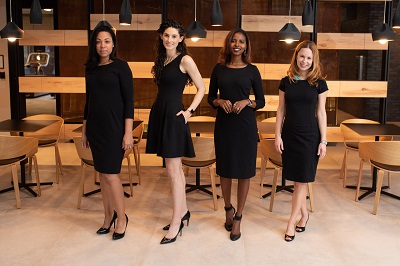
Feminist Fashion and Climate Change
Educating women, while a feminist agenda item, also increases resiliency against climate change. Project Drawdown names educating girls and access to birth control as the #6 and #7 most effective solutions to climate change. If you combine them as one goal, they become the top solution. When women are educated, they are more likely to earn their own incomes and determine their own futures on childbearing.
Additionally, women are disproportionately affected by climate change. Around the world, women have fewer rights, funds, and freedoms—these barriers are expected to be exacerbated by the climate crisis. Since around 80 percent of the estimated 60 to 75 million workers in the garment industry are women, according to the Clean Clothes Campaign, the fight for gender justice in the fast fashion industry would empower millions of women around the world.
Sectors like the fashion industry that depend on a female workforce also face material risks. Women are more in tune with community wellbeing and are usually among the first in community response to natural disasters, according to a UN report. The current barriers to equality limit a business’ ability to respond and adapt to the unpredictable realities of a changing climate. If the fashion industry is to adequately prepare for a climate disaster, addressing gender inequalities and building gender-sensitive policies can bolster a company’s resiliency.
As consumers, choosing ethical and sustainable fashion goes beyond voting with your dollar—it manifests substantial change for disenfranchised women workers around the world. Clothing brands based on fair trade principles empower women on both sides of the supply chain. Researching a company’s supply chain and pressuring fast fashion retailers to clean them up fights for the rights of women garment workers and your right to know what is in your clothing.
“In terms of consumers, fashion is identity,” says Ballard. “It’s hugely empowering to say, ‘I’m going to dress myself in a way that fits my body and my values.’” In this sense, fashion is literally wearing your values on your sleeve—and dressing yourself in ethical clothing is a feminist action.


